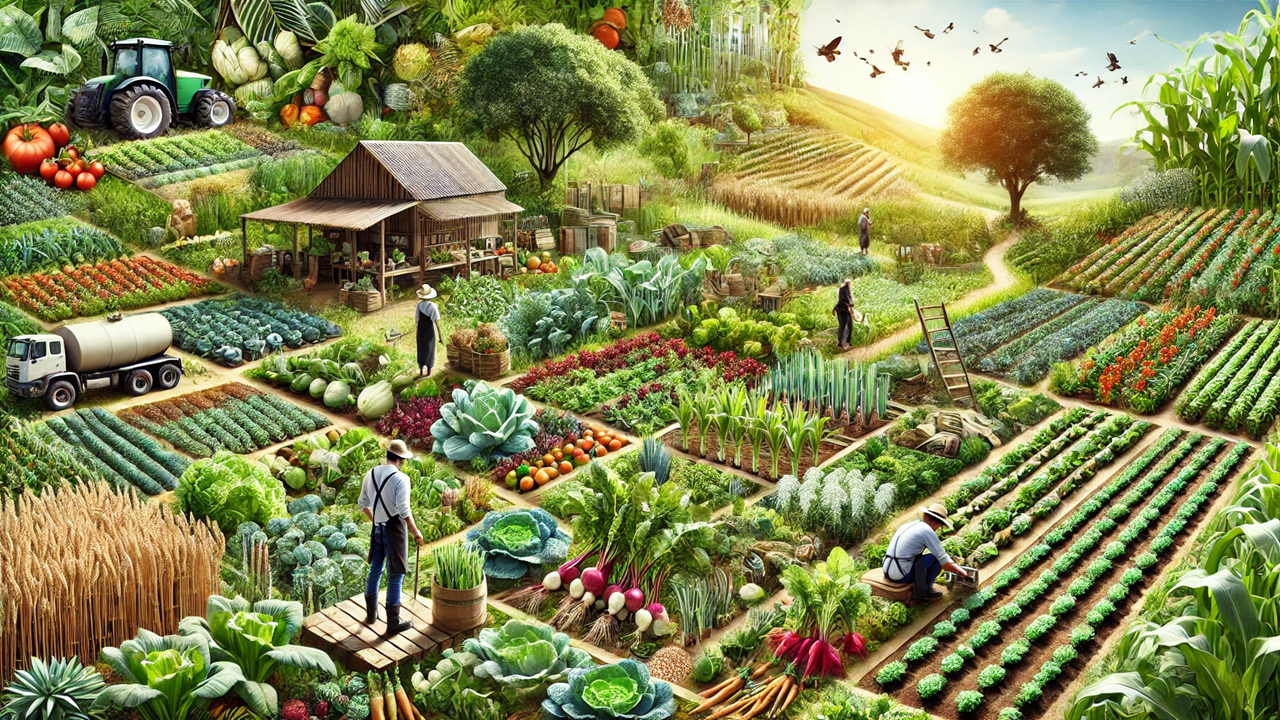Transforming Global Food Systems: A Path to Resilience and Sustainability
This article explores the urgent need to transform global food systems, drawing from the UNDP’s report Supporting Food Systems Transformation Towards Sustainability and Resilience. It highlights the food system's vulnerabilities, including poverty, inequality, and environmental degradation, and outlines four key areas for transformation: governance, structural drivers, realigning value chains, and sustainable finance. The article emphasizes the need for holistic, integrated approaches to ensure food security, sustainability, and resilience for future generations.

The world is at a critical juncture, where the fragility of our food systems is becoming increasingly apparent. With over 281.6 million people suffering from acute food insecurity in 2023 alone, the global food crisis has reached alarming levels. The collapse of food systems is not just about hunger—it’s about societal breakdowns, conflict, and environmental devastation. But amidst the chaos, there is also hope. According to the United Nations Development Programme (UNDP) report titled Supporting Food Systems Transformation Towards Sustainability and Resilience, systemic change is possible, and the time for transformation is now.
The Global Food System in Crisis
The roots of the global food crisis are deep and multifaceted. Conflict, poverty, gender inequality, and environmental degradation are the primary drivers of this instability. Fragile regions, especially those impacted by wars and climate disasters, face the harshest consequences. Food insecurity not only threatens human well-being but also fuels instability, potentially spiraling into broader conflicts.
In 2023, the convergence of factors such as the war in Ukraine, lingering effects of COVID-19, rising inflation, and climate shocks, like floods in Pakistan and droughts in Africa, have all exacerbated food crises. The UNDP emphasizes that the time to act is now. Food systems, which are vital to achieving all Sustainable Development Goals (SDGs), must be reformed to address both the immediate impacts and the structural weaknesses that could lead to further breakdowns.
Pathways to a Sustainable Future
UNDP’s white paper identifies four critical dimensions of change necessary to build resilient, sustainable, and equitable food systems. These dimensions are not independent solutions but interconnected elements that must be approached holistically.
Strengthening Governance and Policies: Governance, policies, and multi-stakeholder collaborations are foundational for sustainable food systems. In many regions, siloed approaches that address only specific parts of the food system are failing. UNDP advocates for a shift towards systemic governance models that consider the whole picture. Policies at national and subnational levels must align with sustainability goals, promoting cooperation between governments, international organizations, and local communities.
For example, restructuring agricultural subsidies to favor sustainable practices such as agroecology is one way to address governance gaps. Instead of short-term fixes, long-term solutions that promote inclusivity and resilience are needed.
Addressing Structural Drivers: Poverty, inequality, gender disparities, environmental degradation, and unsustainable agricultural practices are systemic drivers of food insecurity. UNDP’s report highlights the need for transformative approaches in these areas. Poverty reduction programs, especially those targeting smallholder farmers and women, must be integrated into broader food systems reform efforts.
Gender equality is particularly vital. Women make up a significant portion of the agricultural workforce, yet they often lack access to resources, land, and fair wages. Gender-transformative policies must empower women, ensuring their active participation in decision-making processes related to food production and distribution.
Additionally, sustainable agricultural practices, such as agroecology, need to be prioritized to reduce dependence on harmful inputs like synthetic fertilizers and pesticides. The transition to climate-resilient farming practices will protect ecosystems, enhance biodiversity, and support long-term food security.
Realigning the Food Value Chain: The current global food value chain is heavily concentrated, with a few powerful players controlling much of the production, distribution, and profit. This imbalance disproportionately affects small-scale farmers and low-income consumers. To address this, food value chains must be realigned to distribute power more equitably.
Local food systems should be strengthened by supporting small farmers, promoting sustainable fisheries, and enhancing access to local markets. Shortening supply chains can help reduce food waste, lower transportation costs, and provide communities with affordable, nutritious, and locally produced food.
Sustainable Finance for Transformation: Financing is at the heart of food systems transformation. Public and private investments need to be redirected towards sustainability initiatives that promote resilience. This includes financing for smallholder farmers, investments in sustainable agriculture, and funding for research into climate-resilient crops.
The UNDP calls for global financial systems to be reshaped in a way that fosters food sovereignty and inclusivity. By aligning financial incentives with long-term goals like ecosystem restoration, biodiversity protection, and climate adaptation, a more equitable and resilient global food system can emerge.
A Collective Call to Action
The message from the UNDP is clear: business as usual is not an option. Food systems must evolve to address the challenges of today and tomorrow. This requires unprecedented levels of cooperation, from local farmers to international policymakers, and from civil society to the private sector.
As we look to the future, food systems must become more inclusive, equitable, and sustainable. By addressing structural drivers, promoting gender equality, and realigning value chains, we can ensure that everyone has access to healthy, affordable food. Moreover, by shifting financial systems towards sustainability, we can create resilient food systems that not only feed people but also protect the planet.
Now is the time to act, before it’s too late.
- FIRST PUBLISHED IN:
- Devdiscourse
ALSO READ
Empowering Moves: Kung Fu Nuns Champion Gender Equality
Gender Equality in Land Rights: A Path to Empowerment in Senegal
World Bank and IFC: A Decade of Driving Gender Equality Forward
Kick-Starting Gender Equality: Kung Fu Nuns Showcase Martial Arts Mastery
Reviving DAMUs: A New Framework for Farmers' Climate Resilience










